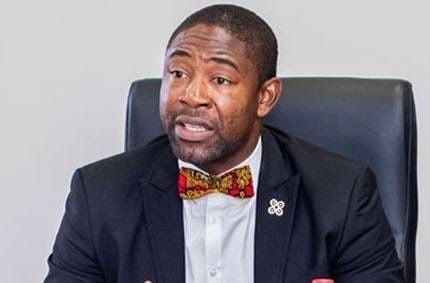The controversy surrounding the attempted removal of Chief Justice Gertrude Torkornoo has sparked heated debate in Ghana, with accusations of political maneuvering and bias against President John Dramani Mahama. Dr. Bernard Okoe-Boye, former Minister of Health, has emerged as a vocal critic of the process, arguing that the President’s influence over the Council of State and the investigative committee casts a long shadow over the proceedings. He contends that the composition of the Council of State, with a majority of members appointed by President Mahama, inherently creates a predisposition towards favoring the President’s position, even if unconsciously. This, he claims, compromises the impartiality required for such a sensitive matter and undermines the Council’s advisory role.
Dr. Okoe-Boye further questions the legitimacy of the five-member committee tasked with investigating the Chief Justice, highlighting the fact that its members were also appointed by President Mahama. He expresses skepticism about the committee’s finding of a prima facie case against the Chief Justice, suggesting that the outcome was predetermined. He links this to President Mahama’s publicly stated desire for a “reset” starting with the Chief Justice, interpreting it as a clear indication of a political agenda aimed at controlling the judiciary. This confluence of circumstances, according to Dr. Okoe-Boye, raises serious concerns about the fairness and transparency of the process.
The heart of Dr. Okoe-Boye’s argument lies in the potential consequences of the Chief Justice’s removal. He warns that such a move would grant President Mahama undue influence over all branches of government, jeopardizing the delicate balance of power that underpins a democratic society. He paints a grim picture of Ghana’s future should this occur, envisioning a “survival of the fittest” scenario where the rule of law is replaced by arbitrary power. The courts, he emphasizes, are the bedrock of a functioning nation, distinguishing it from a lawless jungle. Their independence is crucial for ensuring justice and safeguarding the rights of citizens against executive overreach.
Dr. Okoe-Boye’s appeal to President Mahama is unequivocal: reverse the Chief Justice’s suspension and uphold the independence of the judiciary. He frames this not just as a matter of legal procedure, but as a fundamental defense of Ghana’s democracy. By allowing the process to continue, he argues, President Mahama risks eroding public trust in the judicial system and setting a dangerous precedent for future interference. The independence of the judiciary, he stresses, is not merely a desirable ideal, but a necessary condition for a just and stable society.
This debate about the Chief Justice’s removal reveals a deeper tension within Ghana’s political landscape. It concerns not only the specific individuals involved but also the broader principles of separation of powers, judicial independence, and the integrity of democratic institutions. Dr. Okoe-Boye’s vocal criticism represents a broader concern among some segments of society about the potential for executive overreach and the erosion of checks and balances. The outcome of this situation will undoubtedly have far-reaching implications for the future of Ghana’s political and legal systems.
The allegations of bias against President Mahama and the perceived threat to judicial independence highlight the fragility of democratic institutions and the importance of safeguarding them against political interference. The controversy surrounding the Chief Justice’s removal serves as a stark reminder of the constant vigilance required to maintain a truly democratic system where the rule of law reigns supreme. The calls for transparency and due process underscore the need for a fair and impartial process that respects the principles of justice and ensures public trust in the integrity of the judiciary. The future of Ghana’s democracy may well depend on how this challenge is resolved.














